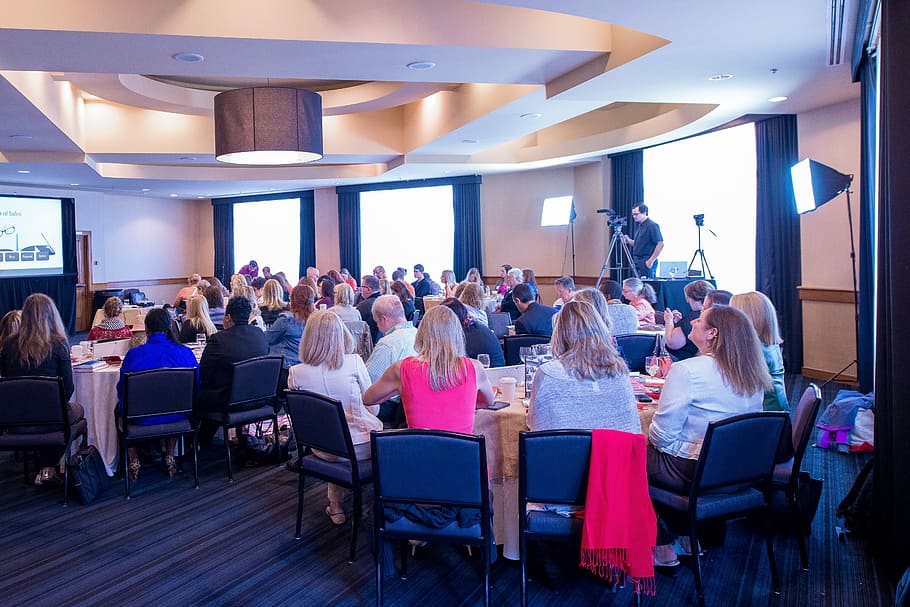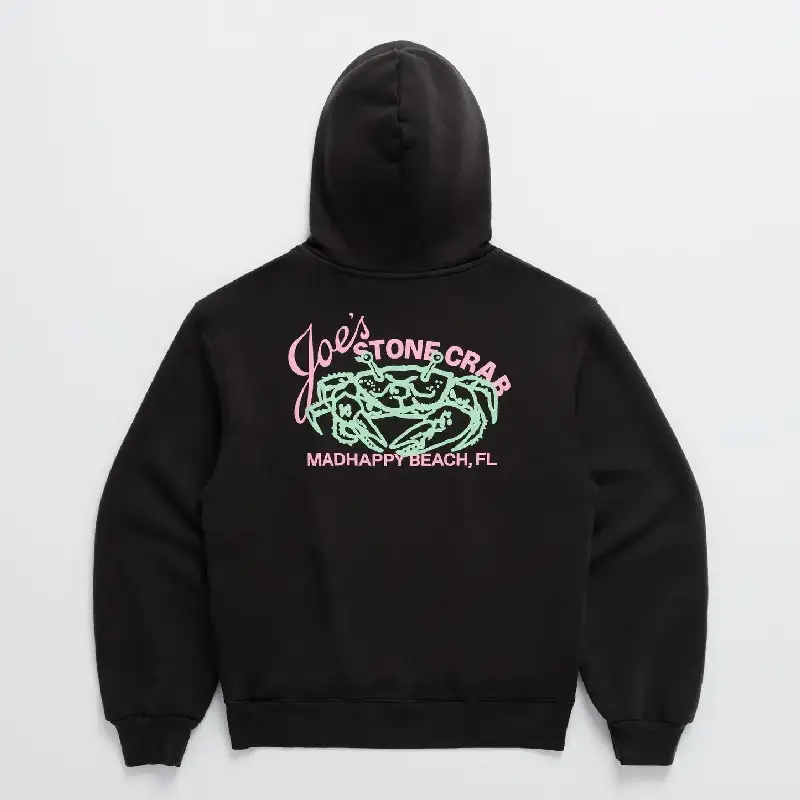11 Conference Marketing Tips To Expand Your Event Reach

Marketing a conference is both an art and a science. It requires careful planning, a deep understanding of your audience, and the ability to adapt to changes quickly. Whether you’re organizing a small industry gathering or a large international conference, effective conference marketing can make the difference between a full house and an empty room. Here are 11 actionable conference marketing tips to help you market your conference successfully.
1. Define Clear Objectives
Before diving into any marketing activities, it’s crucial to establish clear objectives. What do you want to achieve with your conference? Is it to increase brand awareness, generate leads, or foster industry networking? Having specific goals will guide your marketing strategy and help you measure success.
Start by identifying your key performance indicators (KPIs). These could include registration numbers, social media engagement, or the number of partnerships secured. Once your objectives are set, align your marketing efforts to achieve them. For instance, if your goal is to boost registrations, focus on channels that drive conversions, like email campaigns and retargeting ads.
2. Know Your Target Audience
Understanding your target audience is at the core of any successful marketing campaign. Who are the people most likely to attend your conference? Consider factors such as industry, job title, geographical location, and pain points. This knowledge will help you tailor your messaging and choose the right marketing channels.
Create detailed audience personas to visualize your ideal attendees. These personas should include demographic information, professional background, and key challenges they face in their industry. With these personas in mind, craft messages that resonate with their needs and interests. Whether it’s the latest industry trends or networking opportunities, your content should speak directly to what matters most to them.
3. Leverage Social Media
Social media is a powerful tool for conference marketing. It allows you to reach a wide audience, engage with potential attendees, and build a community around your event. Start by choosing the right platforms based on your audience. LinkedIn is ideal for B2B conferences, while Instagram and Twitter can be effective for broader audiences.
Create a content calendar to plan your social media posts leading up to the event. Share updates on speakers, agenda highlights, and behind-the-scenes content to build excitement. Engage with your audience by responding to comments, asking questions, and encouraging user-generated content. Use hashtags to increase visibility and consider running paid ads to target specific demographics.
4. Craft Compelling Content
Content is king when it comes to conference marketing. High-quality content not only attracts attendees but also establishes your conference as a must-attend event. Start with your conference website, ensuring it’s user-friendly, visually appealing, and provides all the necessary information about the event.
Create a blog series that covers topics relevant to your conference theme. This not only boosts your SEO but also positions your event as a thought leader in the industry. In addition, consider creating videos, infographics, and podcasts to reach different segments of your audience. Don’t forget to use email marketing to distribute your content and keep potential attendees engaged.
5. Utilize Email Marketing
Email marketing remains one of the most effective ways to promote a conference. It allows you to communicate directly with your audience, providing them with personalized content and updates. Start by building a segmented email list based on your audience personas. This will enable you to send targeted messages that resonate with different groups.
Design a series of email campaigns that gradually build anticipation for the event. Start with a save-the-date announcement, followed by speaker highlights, early bird discounts, and agenda previews. Ensure your emails are visually appealing, mobile-friendly, and include clear calls-to-action. Track your email performance metrics, such as open rates and click-through rates, to optimize your campaigns over time.
6. Collaborate with Influencers
Influencer marketing is a powerful way to amplify your conference’s reach. Identify industry influencers who align with your conference theme and have a strong following. These could be thought leaders, bloggers, or social media personalities who have the ability to sway your target audience.
Reach out to these influencers and propose a collaboration. This could involve them speaking at your conference, promoting the event on their social channels, or writing guest blog posts. The key is to establish a mutually beneficial relationship where both parties gain value. Influencers can lend credibility to your event and attract attendees who trust their recommendations.
7. Offer Early Bird Discounts
Everyone loves a good deal, and early bird discounts are a great way to incentivize early registrations. By offering a discounted rate for those who sign up early, you can create a sense of urgency and encourage potential attendees to commit to the event sooner rather than later.
Promote your early bird discounts across all your marketing channels, including social media, email, and your website. Clearly communicate the deadline for the discount and the savings attendees will receive. You can also consider tiered pricing, where the discount decreases as the event date approaches, further motivating people to register early.
8. Create a Referral Program
Word-of-mouth marketing is incredibly effective, especially in the context of conferences. A referral program encourages your existing registrants to spread the word about the event, offering them incentives for each new attendee they bring in. These incentives could be in the form of discounts, freebies, or exclusive access to certain parts of the conference.
To create a successful referral program, make it easy for participants to share information about the conference. Provide them with ready-to-use social media posts, email templates, and referral links. Track the referrals carefully and ensure that incentives are distributed promptly to maintain trust and enthusiasm among your referrers.
9. Engage with Online Communities
Online communities, such as forums, LinkedIn groups, and industry-specific platforms, are excellent places to market your conference. These communities are full of professionals who are already interested in the topics your conference will cover, making them a prime audience for your marketing efforts.
Join these communities and become an active participant. Share valuable content, answer questions, and engage in discussions without being overly promotional. Once you’ve established yourself as a valuable member of the community, you can start sharing information about your conference. Offer special discounts or exclusive content to members of these communities to encourage them to register.
10. Leverage Event Partnerships
Partnering with other organizations can significantly extend your conference’s reach. Look for companies, associations, or media outlets that share a similar audience but are not direct competitors. These partners can help promote your event through their channels, increasing your visibility and credibility.
When approaching potential partners, focus on the mutual benefits of the collaboration. This could include co-branded content, shared email lists, or joint social media campaigns. Clearly outline the value your conference brings to their audience and how the partnership can be a win-win for both parties.
11. Analyze and Optimize Your Efforts
No marketing campaign is complete without analyzing the results and optimizing future efforts. After your conference, take the time to review the performance of your marketing strategies. Look at metrics such as registration numbers, social media engagement, email open rates, and website traffic.
Identify what worked well and what didn’t. Did certain channels drive more registrations than others? Were there specific messages that resonated more with your audience? Use this data to refine your marketing approach for future conferences. Continuous improvement is key to long-term success in conference marketing.
Conclusion
Marketing a conference requires a strategic approach that encompasses a variety of tactics. From understanding your audience to leveraging partnerships and analyzing your results, each step plays a critical role in ensuring the success of your event. By implementing these 11 tips, you can create a comprehensive marketing plan that not only attracts attendees but also enhances their overall experience. Remember, the key to successful conference marketing lies in clear objectives, targeted messaging, and ongoing optimization.









